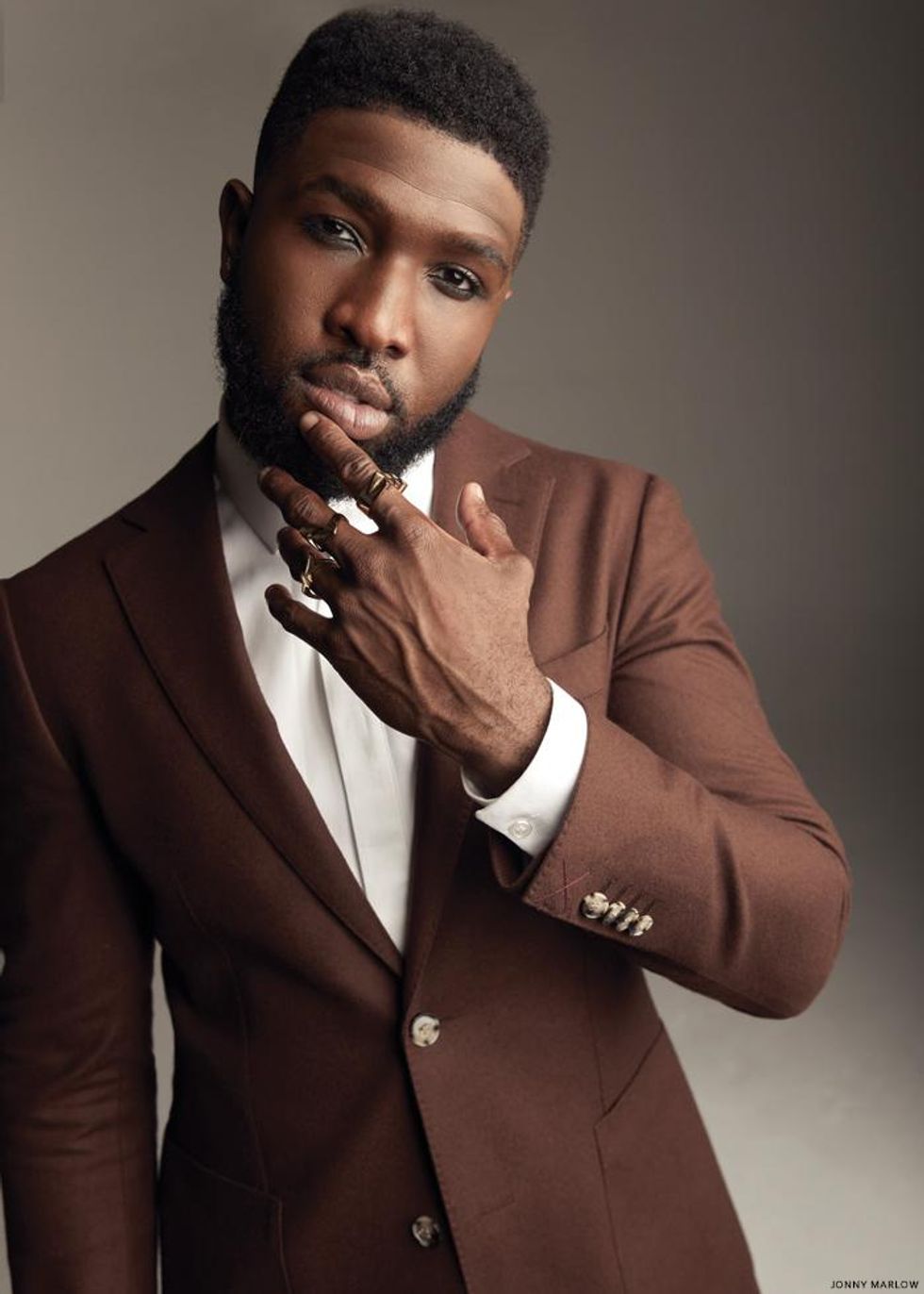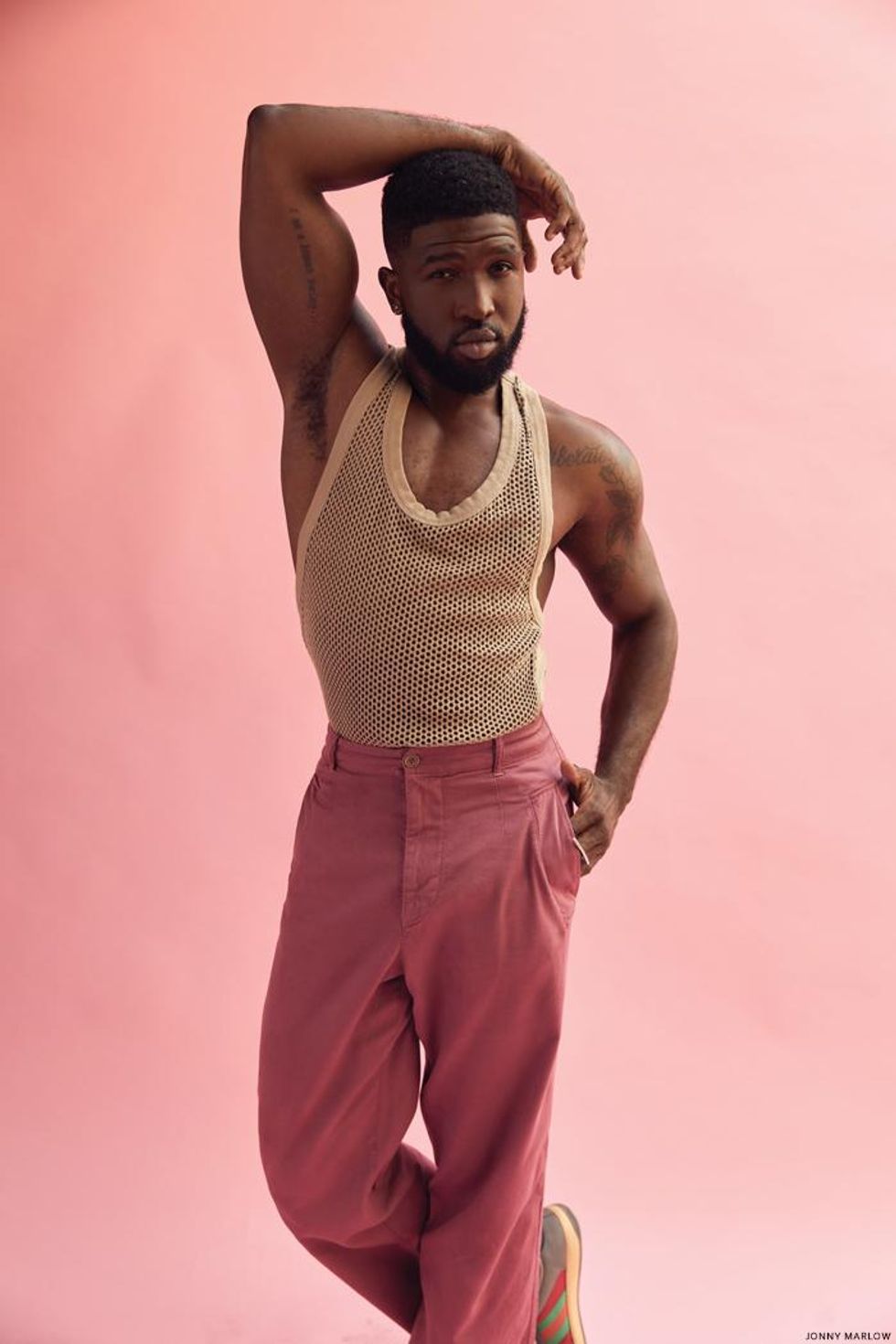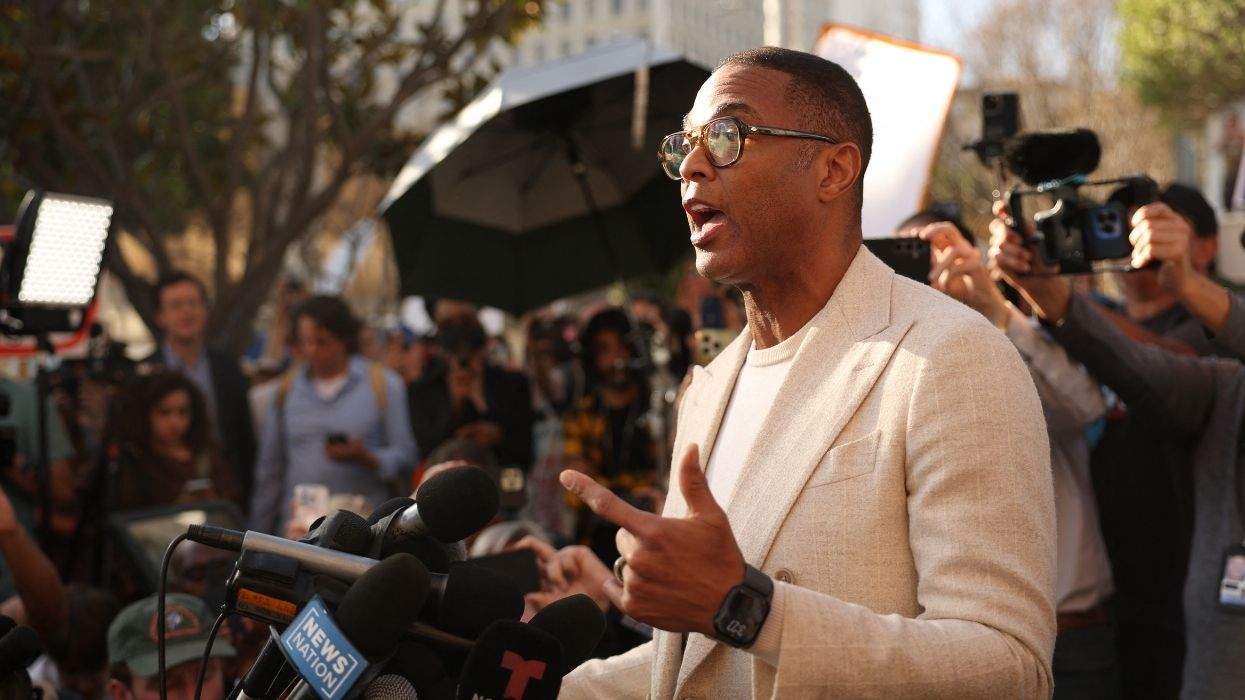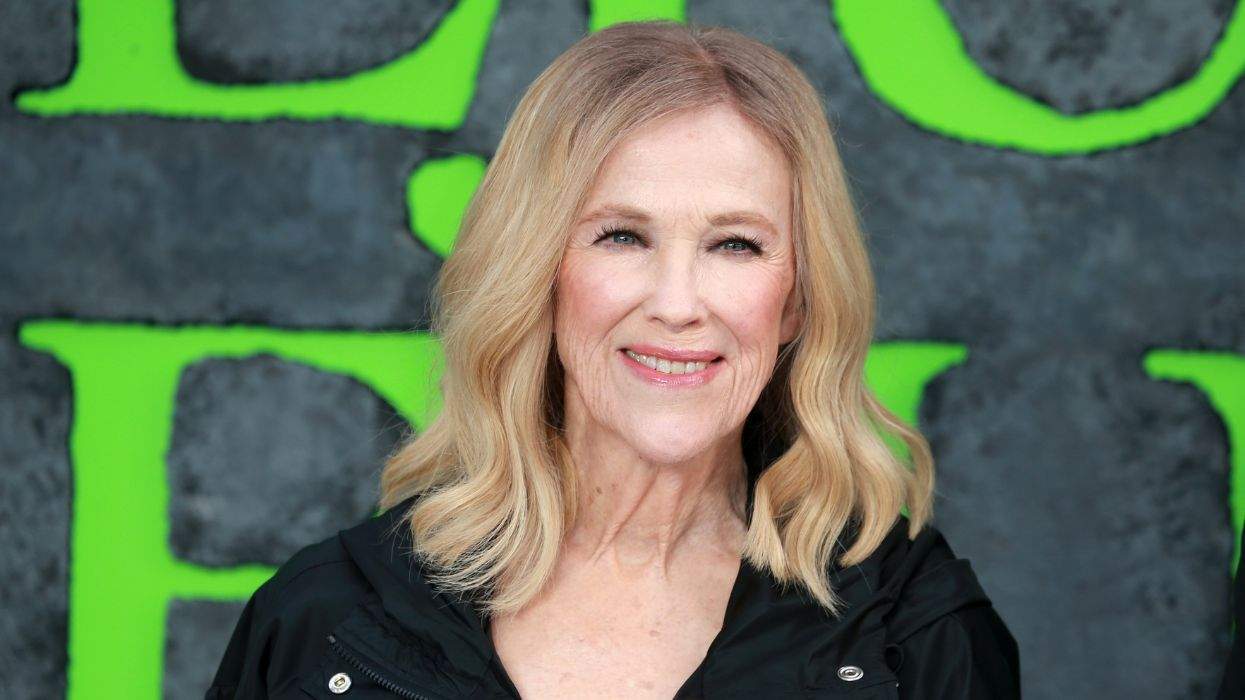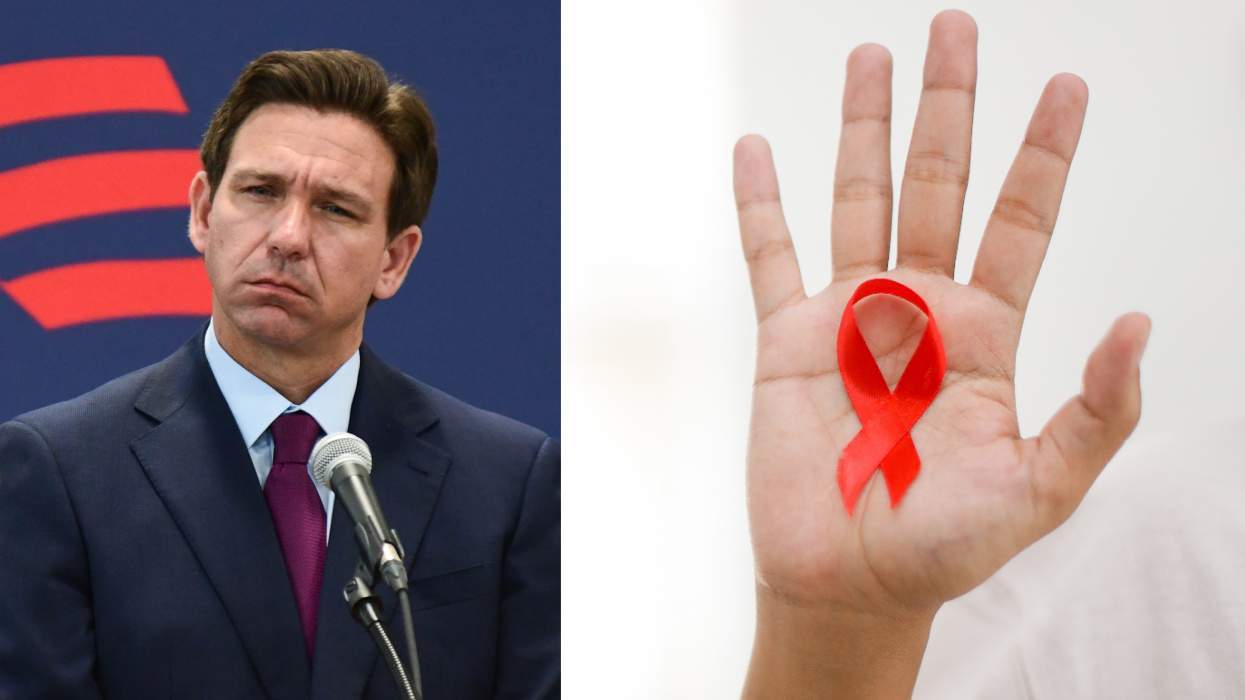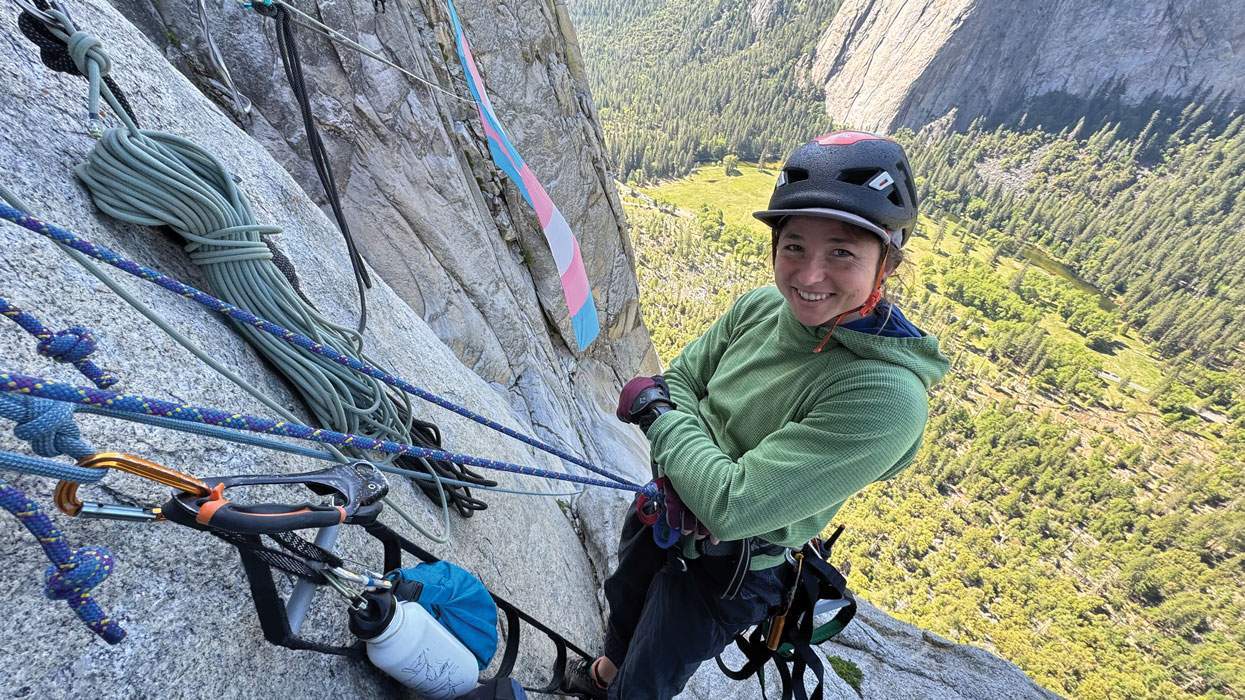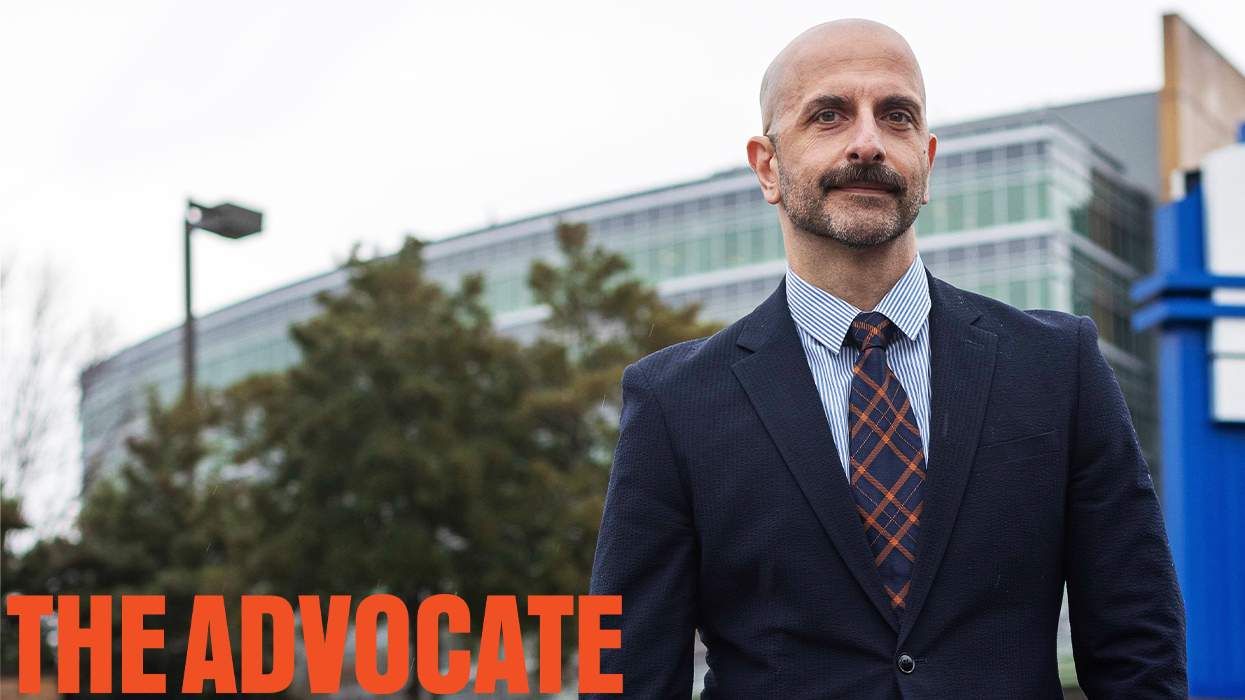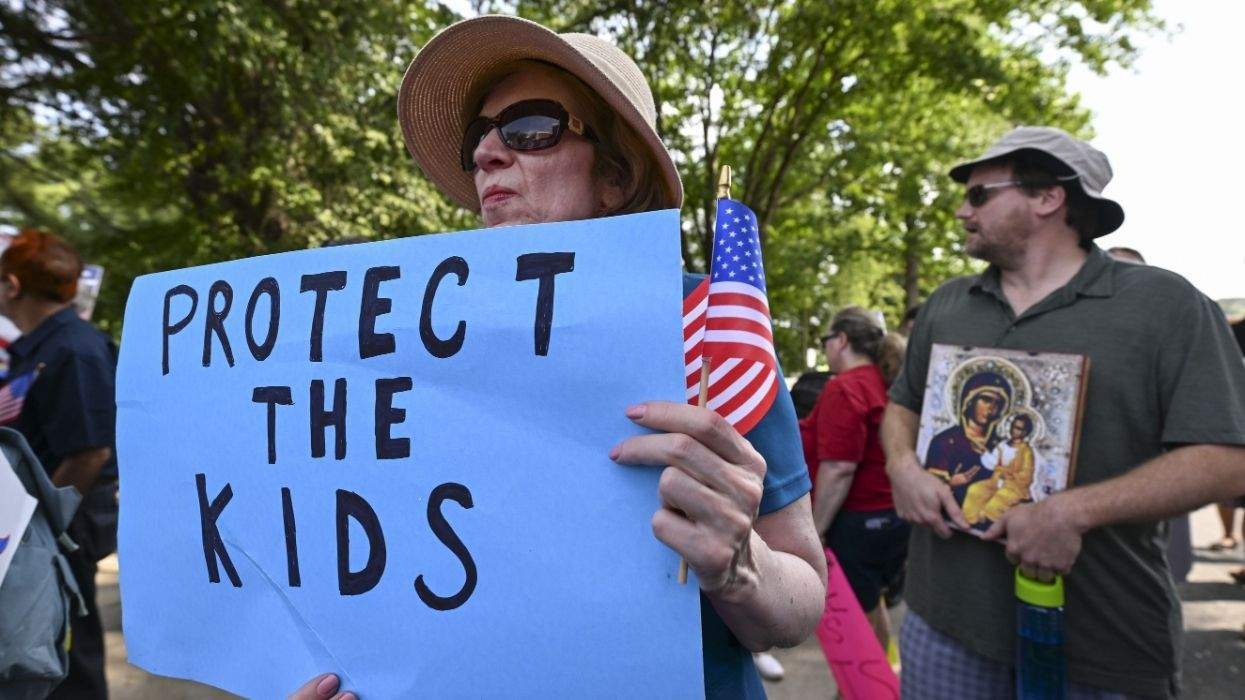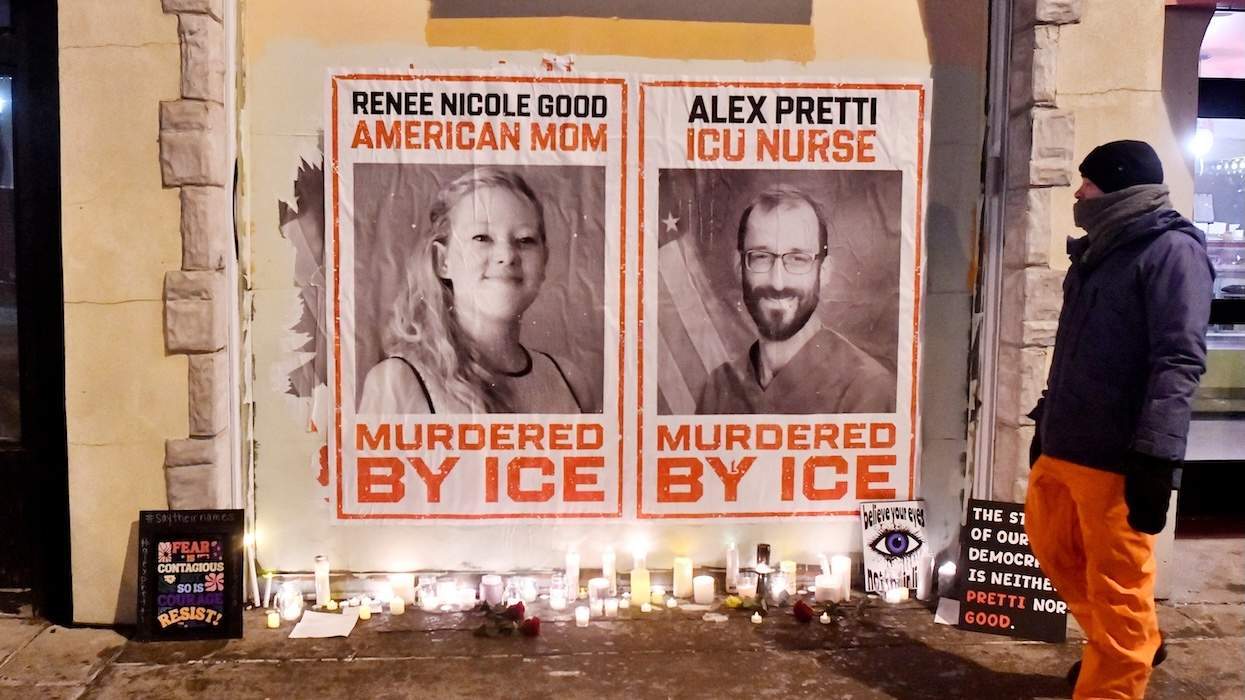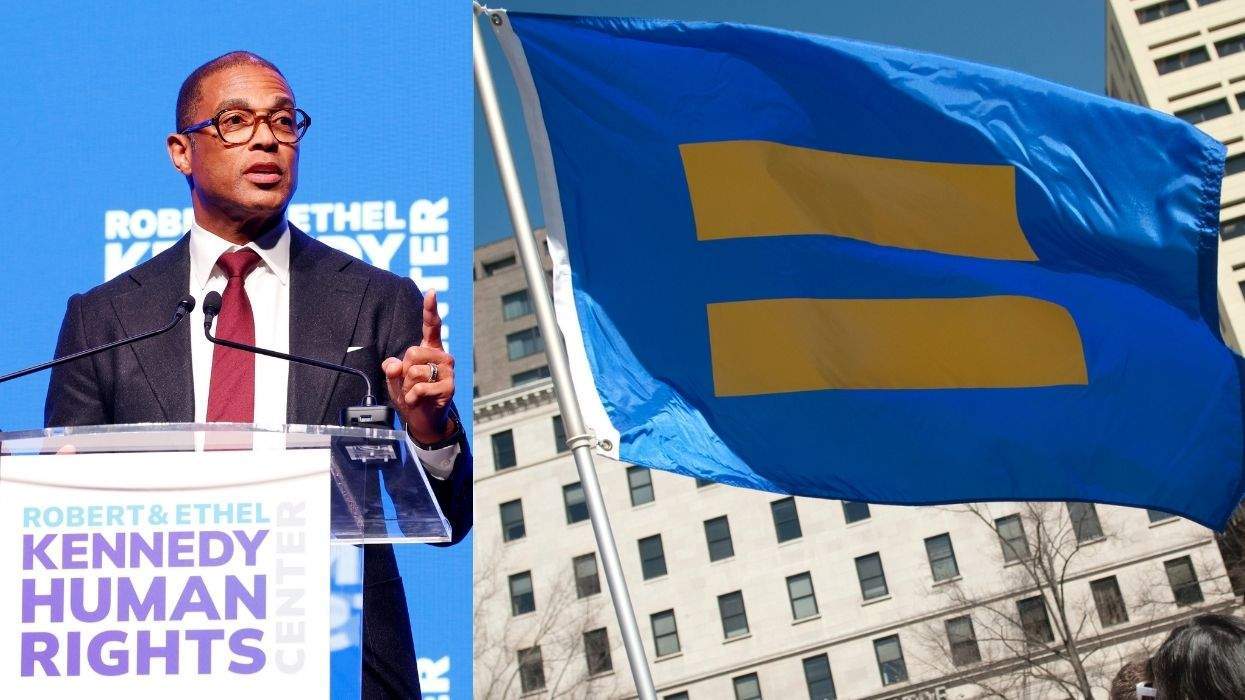Television has not always been an affirming place for Black queer voices, but Brandon Kyle Goodman is changing that one punch line at a time.
The 33-year-old nonbinary writer, actor, and advocate (who uses the pronouns he or they) has made a name for himself writing for Netflix's hilarious animated series Big Mouth, a show about pre-teens surviving puberty. He's signed on to write and voice a character in season 5 as well as its upcoming spin-off, Human Resources.
His viral videos -- discussing race, violence, and the Black Lives Matter protests --also brought awareness and support to groups like the Black Trans Travel Fund, the Bail Project, and the Innocence Project.
He married Matthew Raymond-Goodman in Santa Barbara, Calif., last year, not long before the pandemic struck. He's also the person behind two podcasts: Do the Work, which focuses on race and relationships, and Black Folx, a conversation series focused on Black personalities and authentic experiences. Goodman is not afraid to use this newfound platform to bring about change in real life as well, helping shred the stereotypes assigned to Black and queer characters and instead center a Black queer viewpoint. His writing celebrates those historically marginalized identities, and while he's still writing for laughs, he's also got a purpose.
What attracted you to Big Mouth?
I was a fan of Big Mouth before I became a writer on it because it managed to take one of the most stressful, unstable, emotional times in life [puberty] and make it funny, meaningful, and cathartic. Puberty always feels like something you survive, but I never considered how much it shaped who I became. For me, being a Black queer teenager in a lot of cis, het, white spaces was traumatizing. Big Mouth has allowed me to unpack those traumas in a thoughtful way. The chance to share my experiences through characters like Missy [who's Black] and Matthew [who's gay] and know that perhaps it will articulate what other people have gone through or what some are currently going through is invaluable to me. Representation is of the utmost importance to me. So having the chance to write Black, queer, or Black queer characters and center them in stories that aren't oppression-based is everything to me.
How would you describe your activism?
My activism is rooted in education, empathy, joy, and mental health. When I was about 21, I told my therapist that "no matter how attractive I might be, I'd never be as attractive as a white man." My therapist, a white woman, looked at me with such horror, and I can only describe my reaction as I "woke up." I realized I was so steeped in self-hatred for my Blackness, for my queerness, for my body, for me. Over the years I've had to forgive myself because it was a direct result of the white supremacist systems that I grew up in. So I started writing plays, sketches, and making videos for myself. Things that centered me as a Black queer person. I'm... committed to making sure that every little Black, brown, POC, queer kid, teenager, adult knows that they are of value. That they are beautiful. That they matter.
Apart from the stories I write for TV and stage, before COVID, I began a monthly comedy show at the Standard Hotel that featured POC, queer, and female comics/ performers. I now have two podcasts, one with Starburns Audio called Black Folx...about our lives and how being Black has shaped our identities. The other podcast is with Sony Music and it's called Do the Work. On there, we tackle racist moments that happen between loved ones, colleagues, friends, and discuss why the moment was problematic, then bring the couple together to have an insightful, sometimes painful, but very honest conversation in hopes that it will help them move forward.
I'm also committed to getting Black artists access to the resources they need to thrive in the industry, so I've started a charitable arm of Black Folx which will offer mentorship, provide small scholarships, and put on events with the intention of empowering and amplifying Black voices. It's in its infancy stage, but I'm very honored to be able to offer Black artists more than just a "diversity program" but instead a personal investment in them and their work.
Does being nonbinary make work harder?
Right now, being nonbinary specifically doesn't. At least I haven't felt it. Being Black and queer definitely does. Always fighting to be seen as human, as...someone with a full life that is complicated, nuanced, flawed, joyful, painful, messy, and aspirational. Black people and especially Black queer people are often positioned as a punch line, and if you're not willing to participate in that, it cuts you off at the knees since those are mostly the parts available. This is why I write. Because if those in power aren't going to see me as human, write me as human, then I'll do it myself. I know we are valuable.
What can you tell me about Modern Love?
Modern Love is a series on Amazon Prime based on the New York Times column of the same name. My episode, "Hers Was a World of One," was about a gay couple adopting a child from a homeless woman and how the three of them formed an untraditional family filled with love, struggle, and hope. I got to play opposite Andrew Scott, a.k.a. "Hot Priest" (from Fleabag) who was magic. The episode was important to me because it was not an oppression-based narrative, nor was my race a factor. I got to just play an eager father-to-be. It was a breath of fresh air for me.
I can't wait for Human Resources.
Human Resources follows the creatures of Big Mouth. So there will be some familiar faces and some brand-new ones. I'm writing on the show and also voicing a new creature named Walter, and all I can tell you is I adore Walter. To be a queer Black voice in the animation space is really incredible, and I wish I had a character like Walter to watch growing up. I'm excited for the world to meet him.
Why is the Innocence Project important?
I learned about the Innocence Project from Korey Wise, who is one of the "Central Park Five," who was wrongly convicted of a brutal crime and spent 12 years in prison until he was finally exonerated. Our criminal justice system is corrupt and disproportionately locks up Black and brown people. It also targets our young people, giving them adult sentences. Even writing about this makes me angry and devastated. Innocence Project works to free innocent people who remain incarcerated, while also working to bring reform to the system that wrongfully put them there in the first place. The prison system is white supremacy, racism, and modern day "slave catching" at work, and I know that the only thing that separates me from Korey and any other innocent victim is pure luck. So for me, it's important to support any organization and movement that is committed to dismantling the corrupt system and giving people back their lives.
What are some of the lessons you've learned this year?
The biggest lesson I've learned is that I am my grandmother's child. Her legacy lives deep within me, and I am continuing to do her work. I've learned that there are no words to accurately describe the fortitude, resilience, and pain of being Black in this country. I've learned that "no" is an important muscle to learn how to flex. Having boundaries is self-love and self-care. Joy is sacred.
How do you see TV and film evolving in the next three years?
I hope that TV and film will recognize and honor the fact that Black people, queer people, POC, and women are beyond capable of telling our own stories and that audiences are hungry for it. I hope that we will see less oppression-based narratives and instead allow our Black queer characters to play with, as I say, "all the colors in the crayon box of humanity." I hope...that Black, POC, and queer people will take up more space. I hope we will be centered in our narratives. I hope we will eradicate tokenism...and instead, we will be valued and have our stories set the standard. It's a tall order for three years, but it's also long overdue.


